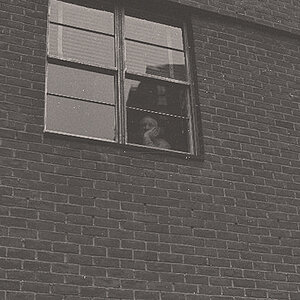MeganChristine
TPF Noob!
- Joined
- Nov 10, 2014
- Messages
- 33
- Reaction score
- 6
- Can others edit my Photos
- Photos OK to edit
Hey all. I've been into photography for probably 10 years or so, always wanted to make money doing what I love. Well a couple weeks ago I started to get my business going. Created a Facebook page, ordered business cards, set up a small studio, bought a new camera, etc. Now my question is this... how do I figure out what to charge?
also, there's a couple photographers in my area who will charge say $100 per session with 15 pictures on a disk. BUT, I helped put another photographer who charged say $100 per session and people had to order pictures and she also made money off of her customers buying prints. which is the best way to do it?
and say I choose the second option, anyone have any print websites that produce good quality(aka they don't cut half my pic or change the colors) at a decent price?
Any help is always appreciated
also, there's a couple photographers in my area who will charge say $100 per session with 15 pictures on a disk. BUT, I helped put another photographer who charged say $100 per session and people had to order pictures and she also made money off of her customers buying prints. which is the best way to do it?
and say I choose the second option, anyone have any print websites that produce good quality(aka they don't cut half my pic or change the colors) at a decent price?
Any help is always appreciated



![[No title]](/data/xfmg/thumbnail/37/37489-27b092c23ed6ad63eee4cd03f96a311a.jpg?1619738111)




![[No title]](/data/xfmg/thumbnail/37/37929-d9f744e40945eb18b68bb10eb79dbbbc.jpg?1619738401)

![[No title]](/data/xfmg/thumbnail/42/42349-fa3065c4e047f0114ec8715d9168dff9.jpg?1619740147)


![[No title]](/data/xfmg/thumbnail/37/37493-07470d1244285a42bb716c7df65abfda.jpg?1619738112)